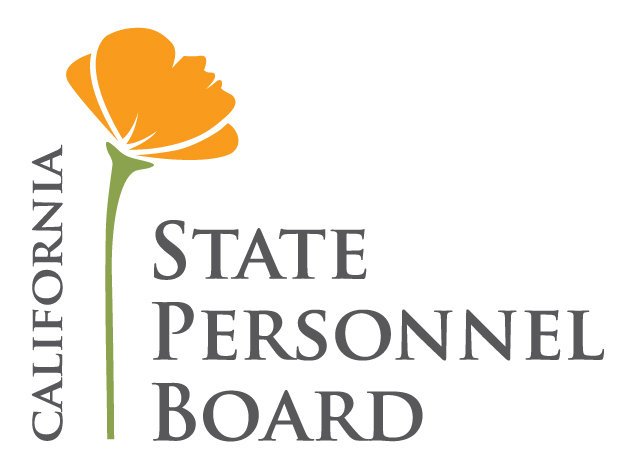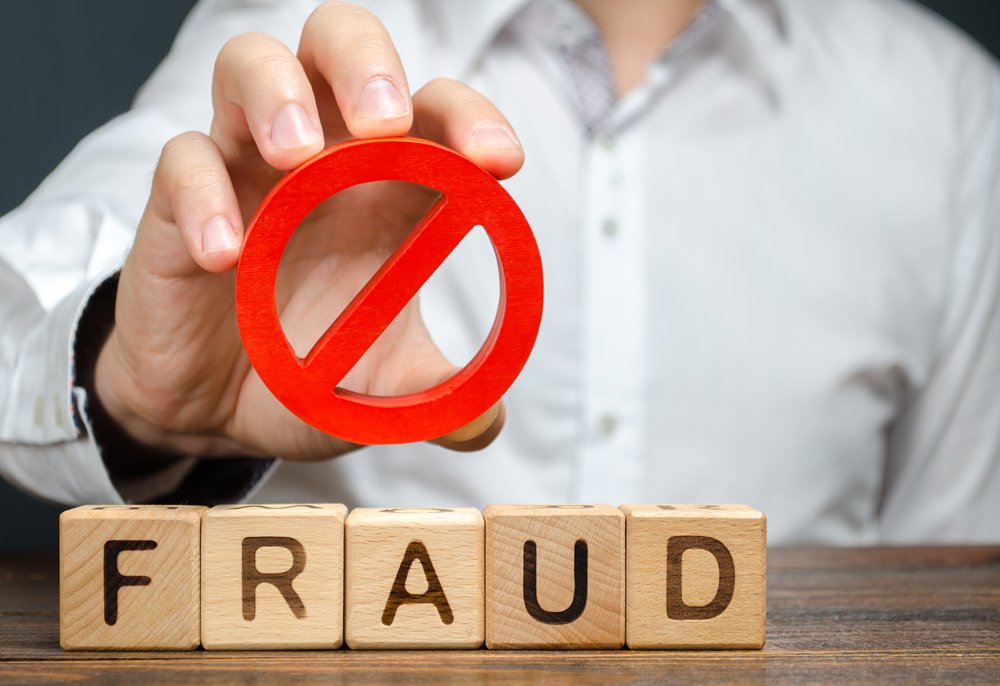A California State agency can dismiss, suspend, demote, or reduce the salary of a state employee who gets convicted of a felony or misdemeanor that is a “crime involving moral turpitude.”
An agency can take the same actions in certain other instances, such as when a state employee is
- drunk on duty,
- inefficient,
- guilty of discrimination, or
- misuses state property.
Note that a crime involving moral turpitude is one that involves
- fraud,
- the corruption of others, or
- particularly egregious acts.
If an agency decides to take disciplinary action against an employee, the affected worker can respond to that decision in writing. If the employer continues in its action, the employee may then appeal that resolution with the California State Personnel Board (SPB).
On appeal, if the parties cannot reach a settlement, then the matter will be heard by an administrative law judge at an evidentiary hearing. The employer can successfully take adverse action against the employee if it can show the following before the judge:
- the employer has proper grounds to discipline the employee, and
- the specific discipline that the employer wants to take is appropriate under the circumstances.
Note that the employer must make this showing by a preponderance of the evidence. This is a lower burden of proof than the “beyond a reasonable doubt” standard used in California criminal trials.
Our California criminal defense attorneys will highlight the following in this article:
- 1. Who regulates state civil service employees?
- 2. What are the grounds for disciplinary action against a state employee?
- 3. What about criminal convictions?
- 4. Are there special rules for California State peace officers?
- 5. Can a state employee do anything if facing disciplinary action?
- 6. What happens at an evidentiary hearing?

If an agency decides to take disciplinary action against an employee, the affected worker can ultimately appeal with the California State Personnel Board.
1. Who regulates state civil service employees?
When it comes to matters of discipline, the California State Personnel Board regulates civil service employees. If a state agency takes adverse action against an employee, the employee can appeal that decision with the SPB.
Note that a state agency can take the following adverse actions against an employee:
- dismissal of employment,
- suspension,
- demotion, or
- salary reduction.1
In deciding which action to take, an agency will consider some of the following factors:
- the actual or potential harm to public service that the employee caused,
- the circumstances of misconduct, and
- the likelihood of reoccurrence.2
2. What are the grounds for disciplinary action against a state employee?
California Government Code Section 19572 sets forth 24 grounds for which a state agency can initiate disciplinary action against an employee.
Based upon this statute, a state agency can initiate disciplinary action when a state employee is:
- guilty of fraudulently securing employment,
- incompetent,
- inefficient,
- guilty of neglecting a job duty,
- insubordinate,
- dishonest,
- drunk on duty,
- addicted to a controlled substance,
- absent from work without leave,
- convicted of a felony or misdemeanor that is a crime involving moral turpitude,
- discourteous to the public or another employee,
- guilty of improper political activity,
- willfully disobedient,
- guilty of misusing state property,
- guilty of unlawful discrimination, or
- guilty of unlawful retaliation.3
Again, any of the above acts can lead to dismissal of employment, suspension, demotion, or reduction in salary.4

a state agency can take adverse action against an employee that gets convicted for a crime involving moral turpitude (such as many involving fraud).
3. What about criminal convictions?
According to Government Code 19572k, a state agency can take adverse action against an employee that gets convicted for a crime involving moral turpitude.
California law defines a crime of moral turpitude as one that involves:
- fraud or dishonesty,
- the corruption of others, or
- particularly egregious acts.5
As examples, the State Personnel Board has found moral turpitude to exist in cases involving:
- fraudulent vehicle registration,6
- the fraudulent collection of unemployment benefits,7 and
- battery on a child of a sexual nature.8
A “conviction” includes a guilty plea or guilty verdict as well as a conviction following a plea of nolo contendere (or “no contest” plea).9
Note that a conviction for certain California crimes means that the convict becomes ineligible to hold any public office in the state of California. A prominent example is Penal Code 424 PC misappropriation of public funds, which carries this penalty on top of a potential state prison sentence of up to four years.
4. Are there special rules for California State peace officers?
Yes. Peace officers are subject to adverse action for any reason stated in Government Code 19572.
“Peace officers” include:
- officers with the California Highway Patrol,
- correctional officers employed by the Department of Corrections and Rehabilitation, and
- special agents with the California Department of Justice.
Note that Gov. Code 19572t authorizes an agency to take adverse action against an employee if he/she commits some act outside of working hours that causes discredit to his/her employer.
When it comes to this particular code section, peace officers are held to a higher standard than other state employees.
Peace officers can be disciplined under Gov. Code 19572t in cases where they were convicted of misdemeanors not involving moral turpitude, and in cases where they were not convicted of a crime at all but engaged in possibly criminal conduct.10
Example: A peace officer employed with the Division of Juvenile Justice leaves work one morning after a night shift, goes to a bar, and gets intoxicated. He meets up with another man and a fight ensues. The peace officer brandishes his gun and fires a shot. Thankfully nobody is hurt, but the officer is convicted of negligent discharge of a firearm, per Penal Code 246.3.
The SPB decides that a Penal Code Section 246.3 violation does not involve moral turpitude, but that the officer deserves to lose his job anyway because it caused discredit to the employing agency.
Now change the facts. A supervising cook at a county jail is disciplined with a salary reduction after sustaining a California DUI. The cook appeals the reduction with the SPB. The Board reverses the disciplinary measure because of a lack of nexus between the off-duty misconduct and the job at issue. While the cook works at a jail, he is not a peace officer and is not held to peace officer high standards.
Note, too, that under California law, a felony conviction disqualifies a person from being a peace officer.11 The disqualification extends to
- out-of-state felony convictions and
- expunged criminal convictions.12
Further, because peace officers are required to carry a gun, certain kinds of convictions can cause the collateral problem of preventing an officer from complying with a job requirement – possibly leading to “non-punitive” termination of employment. Penal Code 29800 (California’s “felon with a firearm” law) makes it a crime for a person to own, possess or use a gun if convicted of a felony or certain enumerated misdemeanors.13
5. Can a state employee do anything if facing disciplinary action?
Yes. Before a state agency can take action against an employee, it must notify the employee of such action within five days of taking it.
At this point, the employee can respond to the notice with reasons why the agency should not take action. Further, the employer can also schedule a “Skelly meeting” in order for:
- the employer and employee to discuss the pending action, and
- the employee to respond to the pending action.14
If the employer still decides to take disciplinary action against the employee, the worker can appeal the decision with the SPB. The employee must file an appeal within 30 days of the adverse action.
An appeal means that the employee must attend a settlement hearing before an administrative law judge. If the employer and employee cannot reach a settlement at the hearing, then the case advances to an evidentiary hearing.
6. What happens at an evidentiary hearing?
An employer must prove the following at an evidentiary hearing:
- the affected employee took some act which qualifies for an adverse action,
- the employer has proper grounds to discipline the employee, and
- the specific adverse action taken by the employer is appropriate.15
The judge will likely overrule the employer’s decision if it cannot successfully prove all of the above.16
Note that the burden of proof at an evidentiary hearing is “by a preponderance of the evidence.” This is a lower standard than the “beyond a reasonable doubt” standard used in California criminal cases.17
The SPB can review an administrative law judge’s decision following an evidentiary hearing. The Board can either:
- adopt the judge’s decision,
- modify it, or
- reject it.18
If the SPB rejects a decision, the parties can then argue their respective positions before the Board itself.19
For additional help…

Call us for help…
If you are a state employee facing disciplinary action by your employer, we invite you to contact our criminal defense firm at the Shouse Law Group. Our attorneys provide both free consultations and legal advice you can trust.
Our lawyers also represent clients throughout California, including those in Los Angeles, San Diego, San Francisco, Los Angeles County, and Sacramento.
Legal References:
- California Government Code Section 19570.
- Skelly v. State Personnel Board, 15 Cal.3d 194 (1975).
- California Government Code 19572.
- California Government Code Section 19570.
- In re Craig, 12 Cal.2d 93 (1938). See also, In re Grant, 58 Cal. 4th 469 (2014).
- In the Matter of the Appeal by Douglas Durham, SPB Case No. 36133, 1995.
- Wilson v. State Personnel Board, 39 Cal.App.3d 218 (1974).
- Padilla v. State Personnel Board, 8 Cal.App.4th 1136 (1992).
- California Government Code 19572k. See also Assembly Bill 2138.
- See Ray Jurado, The Harm to Public Service Standard in Police Misconduct Cases, Los Angeles lawyer, July-August 2005.
- California Government Code Section 1029.
- Adams v. County of Sacramento, 235 Cal.App.3d 872 (1991).
- California Penal Code 29800 PC.
- See Skelly v. State Personnel Board, 15 Cal.3d 194 (1975).
- See State Personnel Board Evidentiary Hearing Process, SPB Statutes and Regulations Supplement (Vol. II – Regulations), January 01, 2018.
- See same.
- See same.
- See same.
- See same.
